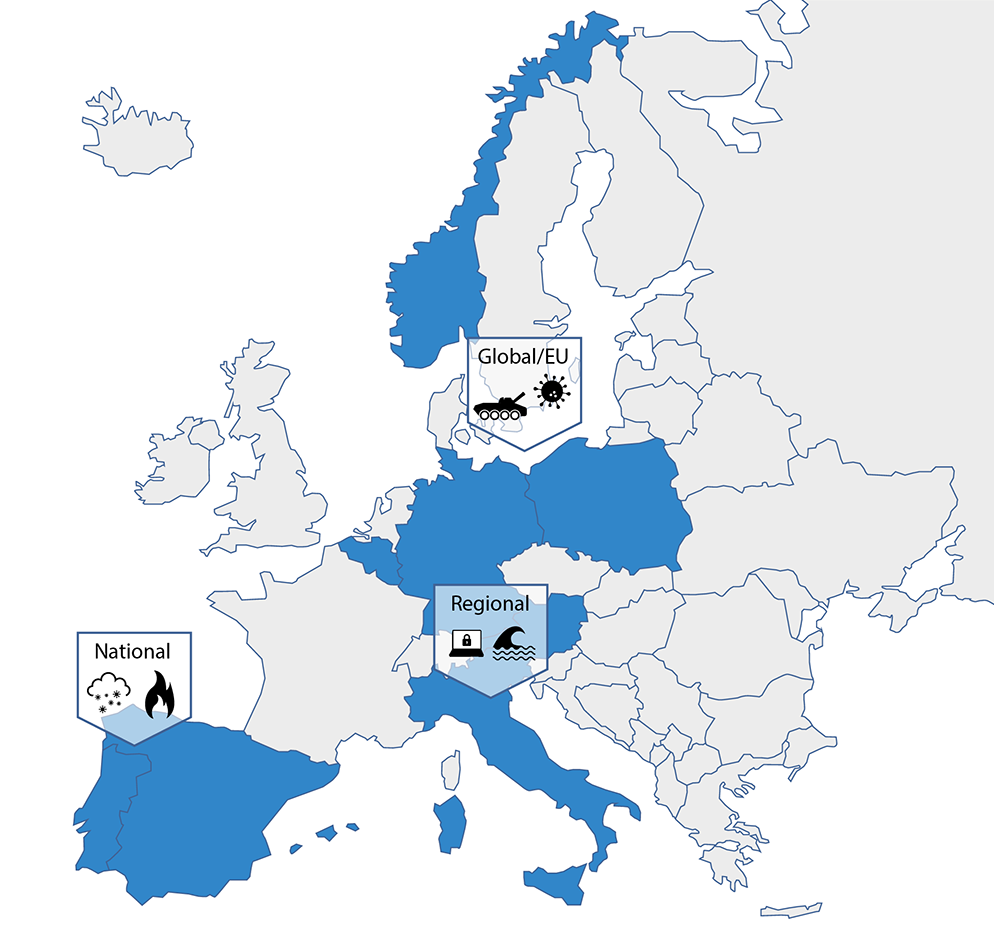Due to globalised supply chains and the prevalence of just-in-time production, all economies of the industrialized world are reliant on the flawless operation of the logistical network. During the Cov19 pandemic it became apparent that this network can be massively shattered and that a better understanding of its robustness, risks and vulnerabilities is of vital importance. Additionally, it is obvious that the accelerating climate change demands a much greener fright transport.
SARIL aims to complement the classic definition of resilience, which focuses on threat prevention, robustness and system recovery, by green aspects. Key performance indicators will be defined which quantify both, the system’s resistance against disruptions as well as the environmental burden of freight transport in close collaboration with a large stakeholder group. Adopting three different scenarios on different geographical scales (regional, national and international/EU), models will be developed which are able to capture the unperturbed system operation as well as the behaviour in case of a disruptions.
While the regional (Italy) scenario focuses on the coupled threat of floods and cyber-attacks on monitoring systems, the national (Spain/Portugal) scenario focus on natural hazards which become more threatening due to climate change, and the international scenario (Northern/Central Europe) considers the disruptions due to pandemics (like Cov19) or wars (like the Russian war against Ukraine). Although the three scenarios will be modelled with varying levels of detail, SARIL aims at a universal understanding of green resilience by using a common framework.
The results for the three scenarios will be used to assess similarities and differences between the three geographical scales. By exploiting the findings, recommendations to improve the classic resilience, like e.g. synchro-modal approaches, will be derived. Additionally, SARIL aims for recommendations to reach a resilient and sustainable transport system addressed to stakeholders and decision makers. The results will be widely disseminated to the scientific community and relevant stakeholders.

The SARIL tools
- Natural Hazard Maps (UVIGO) detects natural hazards via satellite data and performs forest fire risk predictions.
- Traffic simulation (UMINHO) simulates the impact of disruptions in traffic scenarios with varying initial traffic distributions.
- Scour Monitoring for Decision Support (POLIMI) estimates scour on bridge foundations and extrapolates the estimates to a network of bridges using Bayesian networks.
- Vulnerability and traffic tool (RINA) assesses the resilience of traffic networks considering disruptive events and reduced capacities.
- Disruption Information Interface (L-PIT) collects, visualizes and shares georeferenced disruption information.
- Transport simulations – ASTROIT (Fraunhofer) simulates the reaction of logistics networks to disruptive events using an agent-based approach for transport processes.
- Route Attributes – Energy module (SIN) assesses route details such as duration, length and emissions considering the type of transport vehicle and the topography.

Funded by the European Union under grant agreement ID 101103978. Views and opinions expressed are however those of the author(s) only and do not necessarily reflect those of the European Union or the European Climate, Infrastructure and Environment Executive Agency. Neither the European Union nor the granting authority can be held responsible for them.
